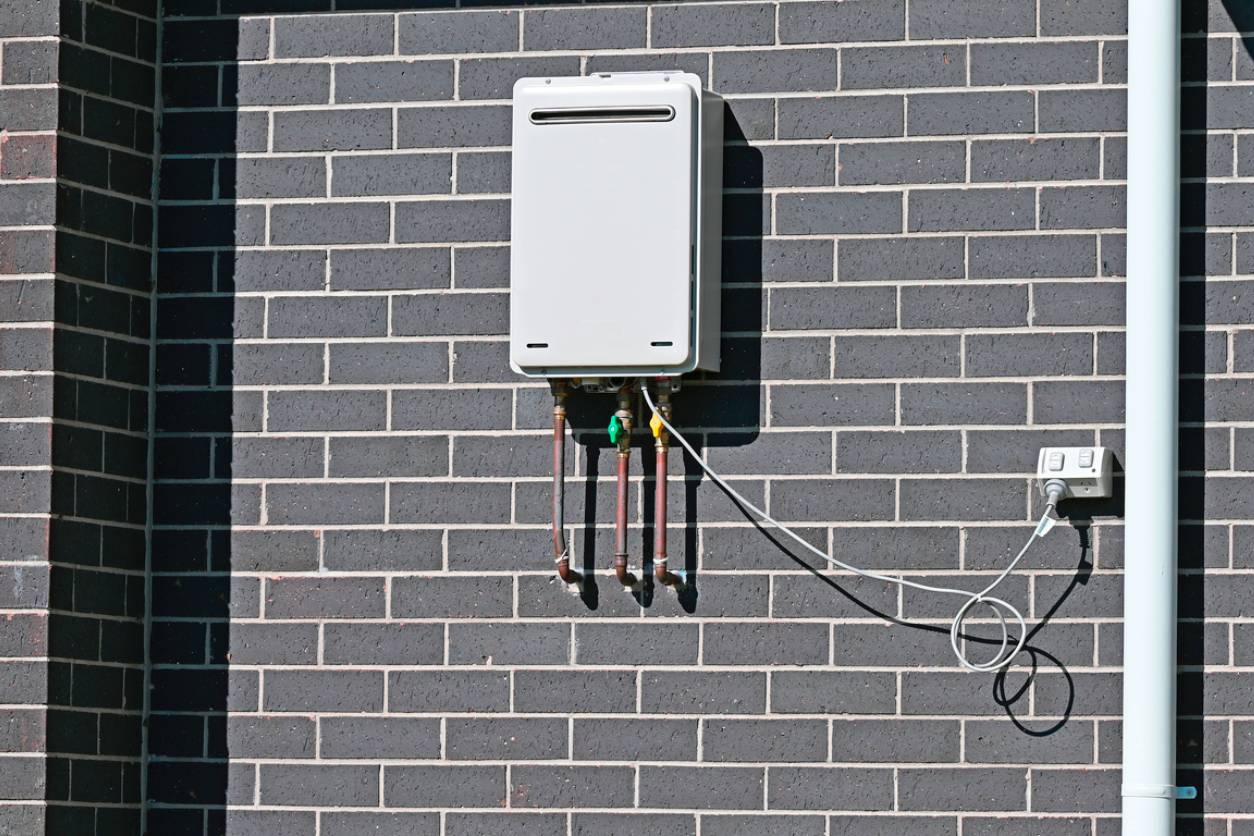 Upgrading your hot water system is no small task, and choosing the right water heater can seem daunting. Tankless water heaters are becoming more and more common among American households. These innovative devices make many promises; they claim to save space, save money, and deliver hot water faster. So, what’s the catch?
Upgrading your hot water system is no small task, and choosing the right water heater can seem daunting. Tankless water heaters are becoming more and more common among American households. These innovative devices make many promises; they claim to save space, save money, and deliver hot water faster. So, what’s the catch?
It’s natural to have copious questions and concerns when making such a significant switch in your home. Bob Larson Plumbing is here to help! Today, we’ll discuss the pros and cons of tankless water heaters, closely examining how they work and if they’re worth it.
How Do Tankless Water Heaters Work?
Tankless water heaters, also known as on-demand water heaters, operate differently from traditional tank-based systems. When a hot water faucet is turned on, cold water enters the tankless unit through the mainline and passes through a flow sensor. This sensor activates the heating process.
The computer board opens the gas valve and ignites the burner for gas-powered units. In electric models, the heating element is powered by electricity. As water flows through the heat exchanger, it travels through a series of tight bends, allowing it to reach the desired temperature set on the control panel.
Advantages of Tankless Water Heaters
Energy Efficiency
Tankless water heaters have proven to be more energy efficient than traditional storage tank systems. According to the U.S. Department of Energy, these on-demand units are 24%- 34% more energy-efficient for most homes. Even households with higher consumption can expect 8%- 14% greater efficiency.
Long-term Cost Benefits
The energy savings of tankless units translate into reduced utility bills over time. Both gas-powered tankless water heaters and electric models are known to save homeowners money every year.
Tankless water heaters also last longer than traditional units. Although the initial investment is higher, tankless water heaters typically last 20-25 years, compared to 10-15 years for traditional tanks. This extended lifespan and lower operating costs typically offset the higher purchase price.
Environmental Impact
Homeowners will be excited to learn that tankless water heaters contribute to a smaller carbon footprint. They consume less energy overall, resulting in reduced greenhouse gas emissions. Plus, their longer lifespan means less frequent replacement, minimizing waste and the environmental impact of manufacturing and disposal.
Endless Hot Water Supply & On-Demand Water Heating
One of the most enticing advantages of tankless water heaters is their ability to provide a continuous hot water supply. Unlike traditional tank-based systems, these on-demand units heat water as it flows through the device, delivering a constant stream of hot water whenever needed.
When a hot water faucet is turned on, cold water flows through a heat exchanger in the unit, where it’s heated by either a natural gas burner or an electric element. This process eliminates waiting for a storage tank to fill with enough hot water.
Space-Saving Design
Tankless water heaters offer a significant advantage in terms of their compact size and space-saving design. These units are much smaller than traditional tank models (typically about the size of a small suitcase). This compact design allows for flexible installation options, making them ideal for homes with limited space.
The compact size of tankless water heaters provides homeowners with various installation possibilities. These units can be installed in closets, basements, garages, or exterior walls. This flexibility allows homeowners to maximize usable space in their homes.
Disadvantages of Tankless Water Heaters
Higher Upfront Costs
Tankless water heaters typically have a higher initial cost than traditional tank-based systems. Installation expenses, including potential upgrades to electrical systems, gas lines, or water lines, contribute to this higher upfront investment.
Limited Flow Rate
While tankless water heaters provide endless hot water, they have a limited flow rate of 2-5 gallons per minute 4. This can cause decreased water pressure when multiple hot water outlets are used simultaneously. Even the largest gas-fired models may struggle to meet high concurrent hot water demands in large households.
Finding Expert Tankless Water Heater Installation
Tankless water heaters are the future of water heating systems. The only thing left is finding a reliable plumber to install your new system safely and efficiently.
When you need a tankless Water Heater installation in Tacoma, you won’t have to look far. We at Bob Larson Plumbing are dedicated to bringing our a-game to every job and every customer. Choose a plumber you can trust to get the job done right the first time, and schedule service with us today!
Switch to Tankless Today! Trust Bob Larson Plumbing for Hassle-Free Installation & Ongoing Care
Are you ready to take the plunge and update to an efficient and convenient tankless hot water heater? Bob Larson Plumbing is your trusted partner for professional installation and reliable maintenance.
Our team can carry out a seamless upgrade so that you have peace of mind from consultation to completion. Plus, with our ongoing maintenance services, we’ll keep your system running smoothly for years to come. Contact Bob Larson Plumbing today to schedule your tankless water heater installation and enjoy endless hot water without the hassle!


